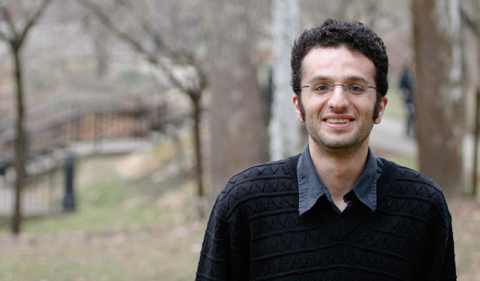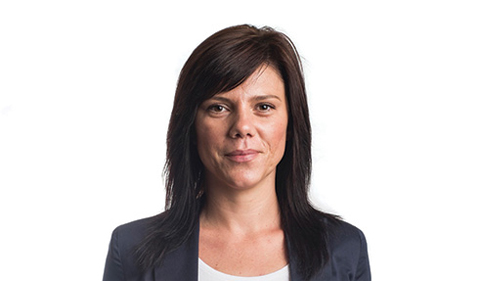
Mahmoud Asmar
By Angela Woodward
From Compass
A world of opportunity awaits students who graduate from Ohio University’s Physics & Astronomy Department and who engaged in research efforts while at OHIO.
“Our graduates have gone on to do really neat things in academia, scientific facilities and industry,” said Dr. Carl Brune, Professor of Physics & Astronomy. “Our students do all kinds of things after they graduate, but they’re all successful.”
At least two of the department’s 2016 doctoral graduates are continuing to pursue the research efforts they began at OHIO in postdoctoral research positions both within the United States and overseas.
Mahmoud Asmar joined the Physics & Astronomy Department’s Ph.D. program in the fall of 2008. Born and raised in Colombia before moving to Palestine, Asmar said he was drawn to OHIO by two of his research advisors at Birzeit University in Palestine who both received their doctoral degrees from here and who touted both the educational excellence and strong and welcoming scientific community at the University.
While at OHIO, Asmar conducted research under the supervision of Dr. Sergio Ulloa, Professor of Physics & Astronomy. Together, the two published several articles in the competitive field of graphene and Dirac-like materials.
Today, Asmar is a postdoc at Louisiana State University.
“I benefitted a lot from my research at Ohio University,” Asmar said. “The research performed during my PhD not only allowed me to continue working, in collaboration with Professor Sergio Ulloa, in Dirac-like materials, but also allowed me to utilize the knowledge and tools gained during my Ph.D. to tackle different sets of problems in my postdoctoral position at Louisiana State University.”
“The interaction with the faculty during my Ph.D. was also very helpful, since these interactions not only improved me as scientist, but also helped me understand the way the scientific society interacts, and the enormous amount of responsibility and hard work that a successful faculty member should have,” Asmar added.

Andrada Mandru
Fellow 2016 doctoral graduate Andrada Mandru is also a postdoc, researching magnetic materials at EMPA, the Swiss Federal Laboratories for Materials Science and Technology, in Switzerland. Although she notes that many of the techniques she uses today are different than those she used at OHIO, “the skills sets that I developed at Ohio University helped me make progress quickly and adapt more easily.”
While at OHIO, Mandru, who is originally from Romania, conducted research under the guidance of Dr. Arthur Smith, Professor of Physics and Astronomy, and saw significant success during the course of her studies. In addition to earning several awards, the four main research projects contained in Mandru’s dissertation were all selected for publication in scientific journals.
Mandru is quick to note some of the many benefits she gained from the research she conducted at OHIO.
On a professional level, she said, “All the poster and oral presentations that I have given throughout the Ph.D. years improved my public speaking skills. While conducting research, I had to interact with various collaborators, both from Ohio University and from other institutions. Thus, my communication skills have improved, and I also got to interact with some very nice, helpful people.”
“Regarding mentorship, Professor Smith was always very supportive and provided good feedback on whatever I was working on. The feedback I received in regards to paper writing, for example, improved my scientific writing skills,” Dr. Mandru added. “I also appreciated the freedom that he has given me with the research that I conducted. As a result, I became better at planning and executing experiments. Professor Smith always encouraged me to apply for awards, which ultimately were a great achievement. The guidance and encouragement I received from other faculty members within the Department of Physics and Astronomy has also been extremely valuable.”
On a personal level, Mandru noted how she benefited from the culturally diverse research community in which she worked and the Physics & Astronomy Department in general.
“You become more respectful of people’s backgrounds and beliefs, you watch yourself change and become better as a result,” she said.



















Comments